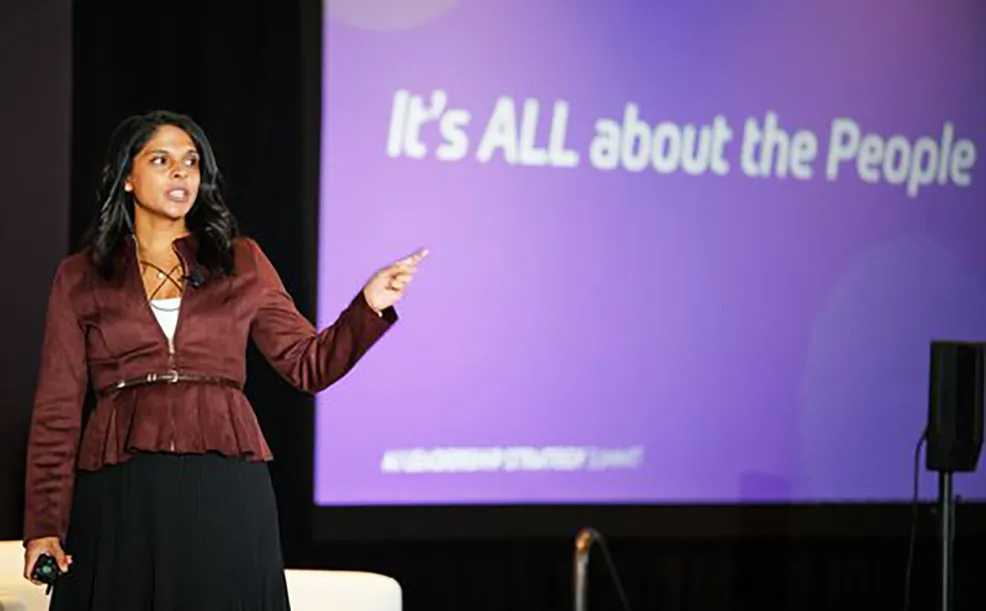
Rachini Moosavi, chief analytics officer for UNC Health, speaks at the AI Leadership Strategy Summit in Chicago on Thursday.
Photo: HIMSS
CHICAGO - The governance culture of a hospital or health system is central to AI implementation, according to Rachini Moosavi, chief analytics officer for UNC Health.
Leadership is not just about leading, Moosavi told a crowded ballroom Friday at the HIMSS AI Leadership Strategy Summit here. It’s about leading and supporting the people who are part of the groups for which leaders are responsible. People need to come first when deploying AI, she said.
AI is routinely being used to automate systems. But if 500 coders are disrupted when AI is deployed in their workflow, that’s an issue. It could be addressed through “reskilling” people into jobs requiring a higher skill set, she said.
“It’s AI forward, not AI first,” Moosavi said. “Values drive our investment in AI and automation.”
Moosavi was also a panelist in the session, “Building an AI Driven Culture: Integrating Newfound Intelligence into Workflows,” where she said of deploying AI automation, “The ROI might not be there.”
However, the question that should be asked, she said, is whether AI is being meaningfully used and is helping clinicians.
In the session, “Optimal Ingredients for AI to Thrive: Essential Workforce Competencies,” panelists talked about the willingness of staff to adapt to change as a key ingredient to AI implementation.
Sagar Parikh, vice president, Operations Excellence and Innovation for revenue cycle company Ensemble Health Partners, said there has been a comprehensive willingness to experiment “down to the last operator in the building.”
There’s a willingness to try things out, he said. “Sometimes,” Parikh said, this “fundamentally shifts what we’re doing.”
There’s a delineation between what humans can do and what machines are able to do, he said. Workers need to focus on human-centered care and give up the machine things they thought were critical to their jobs.
The easiest AI to adopt is ambient documentation as it takes on burdensome administrative tasks.
AI is also helping the patient experience, according to Everett Weiss, medical director, Health Informatics at Rochester Regional Health. Because of AI’s ability to take over notetaking, patients are thanking physicians for not turning their backs on them to use their computers, he said.
Susan Fenton, vice dean for education for the Department of Clinical and Health Informatics, University of Texas Health Science Center at Houston, said the question should be, “How can we help make their jobs better? It takes a cognitive load off of them.”
Email the writer: SMorse@himss.org